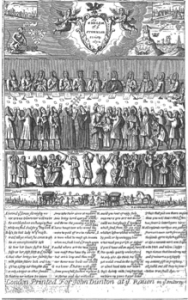I103 History of Information, Spring 2012
Identify and explain the relevance to the history of information of the following
You will have to answer 12 IDs (1 point each)
- Seven will come from the list below and you will need to answer all of these.
- There will also be a list of another seven IDs drawn from the course lectures and readings that you will not have seen in advance. You will need to answer five of these.
- Sequoyah
- inkhorn words
- cabinet of curiosities
- rebus
- tung
- “Ceci tuera cela”
- virtuosi
- Roger Fenton
- Benjamin Franklin
- Francis Bacon
- John Wesley
- Alfred Vail
- Vicesimus Knox
- Jean Mabillon
- codex
- Statute of Anne
- American Bell Telephone v. Spencer



Essays
Three of the following questions will appear on the test and you will be expected to answer two of them (4 points each). You will also be given two questions that you have not seen in advance that address recurrent themes from the first half of the course. You will be expected to do one of these (5 points). Be sure to answer all the questions asked and to provide adequate evidence and citations.
1. What are two ways in which the Encyclopédie of Diderot and D’Alembert is similar to Wikipedia and two ways in which it seems different?
2. Plato argued that “the discoverer of an art is not the best judge of the good or harm which will accrue to those who practice it.” Using an example from the course so far, and considering not just “discoverers” but also “early adopters” support or challenge Plato’s assertion.
3. What are some advantages of an alphabetic over a logographic writing system? What are some advantages of a logographic system over an alphabetic one?
4. The physicist John Ziman argued that science centrally concerns not so much experiments as writing and persuasion. Argue whether this argument fit with what we learned about the emergence of science and/or medicine. Show what challenges a reliance of print might present and how these challenges might be overcome. Discuss whether Ziman’s view of print supports Eisenstein’s argument.
5. “To say that information literacy is crucial to effective citizenship is simply to say it is central to the practice of democracy!” Discuss, with reference to the history of attitudes about literacy.